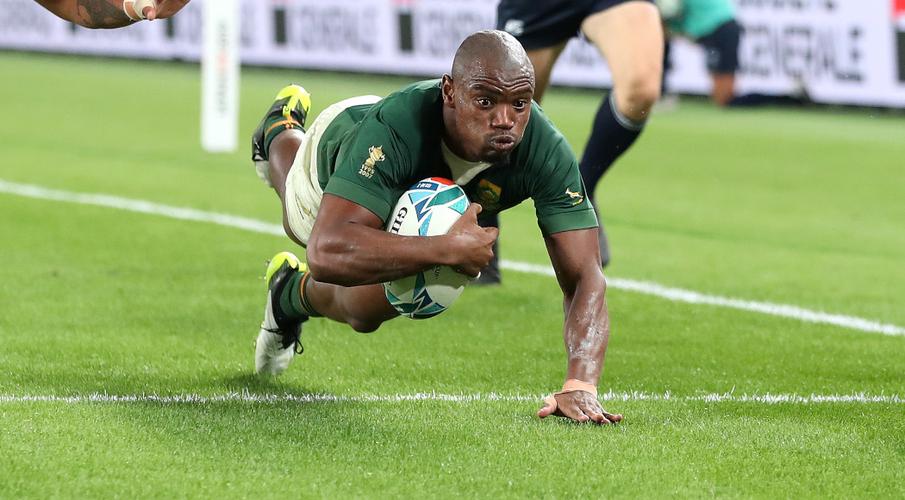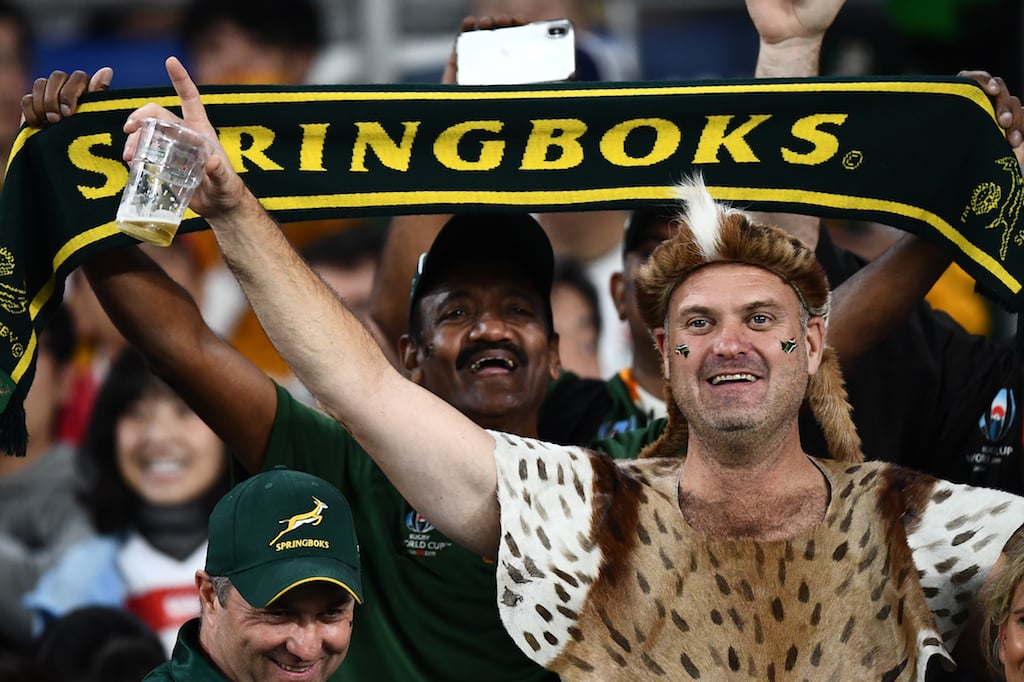Riyaz Patel
Springbok skipper Siya Kolisi says he hopes hopes winning the World Cup in Japan will “inspire every kid” in South Africa, with President Ramaphosa describing the victory as a “moment of inspiration.”
The Springboks secured a record-equalling third world title after sweeping away the English 32-12 in a dominant display in Yokohama, Japan.
It was to some a bitter-sweet victory.
Bitter in the sense that both starting wings in the Springboks’ famous 1995 Rugby World Cup victory – James Small and Chester Williams – passed away in the last four months.
And when left wing Makazole Mapimpi – who inherited the left-wing number 11 jersey number of ’95 winger Williams, and Colby Cheslin who wore the 14 right-wing jersey as did Small in ’95 – crossed over for South Africa’s first and only tries in a Rugby World Cup Final, it appeared that the 2019 Springbok triumph was written in the stars.
An ecstatic President Cyril Ramaphosa said: “This is a moment of inspiration for all South Africans in all avenues of life and all sectors of our society. It is a moment that is embedded forever in our national memory.”

Kolisi, who became the first black South African captain to lift the William Webb Ellis Trophy, says victory will “pull the country together.”
“We had one goal and we have achieved it,” the Bok captain said.
“In a team that used to represent segregation, but now represents unity, to be led by a black African man is more significant than anyone could ever imagine. This team has handled this emotional rollercoaster so well and they have acknowledged their responsibility. Today was magical.” John Smit, South Africa’s 2007 World Cup winning captain
“A lot of us in South Africa just need an opportunity and there are so many untold stories.”
The 28-year-old flanker, who wears the iconic number six jersey for the Springboks, the same number worn by Nelson Mandela when he handed the same trophy in 1995 to South Africa captain Francois Pienaar, who also wore number six.

Kolisi, who grew up up in a poor township of Zwide, just outside Port Elizabeth on the Eastern Cape, flew his father abroad for the first time to watch him lead his country in Japan.
He added: “You can never forget where you come from or the people who have helped you get here so I just wanted to celebrate with him [his father].
“Growing up, I never dreamed of a day like this at all. When I was a kid all I was thinking about was getting my next meal.”

“This is a moment of inspiration for all South Africans in all avenues of life and all sectors of our society. It is a moment that is embedded forever in our national memory,” Ramaphosa added.
The skipper said coach Rassie Erasmus told the players they were not just playing for themselves, but for all of South Africa. The country is suffering an economic crisis with the unemployment rate sitting at 29%.
“This is a powerful indicator of what we can achieve as South Africans when we set goals for ourselves and we work together to achieve success,” said Ramaphosa.
Listening to captain Kolisi and coach Erasmus talk about what this famous victory meant in the immediate aftermath of win, one begins to understand exactly what England were up against and the way the Springboks were thinking about it, England had lost the match before the first whistle sounded.
“Since I’ve been alive, I’ve never seen South Africa like this,” Kolisi said.

“We have so many problems in our country but a team like this, we come from different backgrounds, different races but we came together with one goal and we wanted to achieve it.
“Coach Rassie supported me when I was 18 years old and I’ve been working hard since then.”
Erasmus echoed his captain’s comments, saying rugby is a “privilege” after leading his country to glory in his first World Cup as coach.
“Hope is when you play well. Hope is when people watch the game on a Saturday, and they have a BBQ, and they feel good about themselves, and no matter your political differences, or your belief differences, for those 80 minutes, you all agree. It is not our responsibility as players to create that hope, it is our privilege.”
“In South Africa pressure is not having a job, pressure is one of your friends being murdered,” Erasmus added.
Erasmus took the decision to hand Kolisi the armband in May last year and the gaffer said it is “tough” for his captain to tell his story.

“It’s easy to talk about going through hard times and struggling to get opportunities, but it’s tough to tell people that there were days when I didn’t have food or shoes to wear,” said Kolisi.
“And when you sit down and think about it clearly, and think there was a stage when Siya went through stuff like that, then he sits here as captain holding this trophy.
“That should sum up what Siya is,” Erasmus said.

South Africa’s 2007 World Cup winning captain John Smit said: “Even as a guy who has won it, this is a far bigger occasion because of where we are as a country at the moment and where we are going.

“I always wondered if it was too much of a fairytale to see Siya win the trophy, but it could not have happened at a better time. To see a guy like Siya be able to lift the World Cup trophy, it will have a significant impact on our country,” said former Springbok captain Smit.
The ‘Green Machine’ also won over the Japanese public.
Former Arsenal football legend, Ian Wright was full of praise for Kolisi.
While England’s former cricket captain said it’s been an amazing ‘rags to riches’ story for the Bok skipper.
It is not necessarily the sharpest, smartest, fittest, fastest or strongest team that wins world cups, but the one who wants it most.
“This was never just about the rugby. This was about a team uniting a nation and giving it hope,” said Erasmus.
When the final whistle rang out in Yokohama, the Springboks of ’19, like in ’95 and ’07, had done just that!



